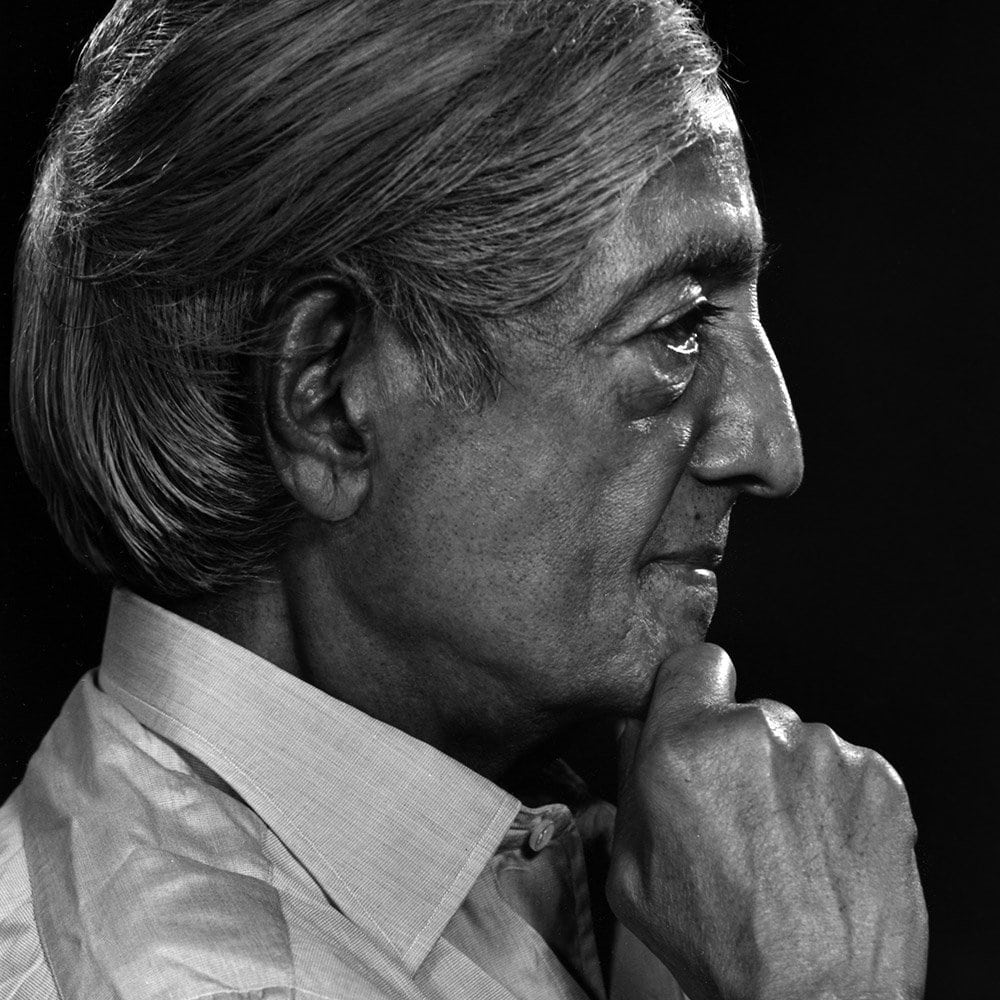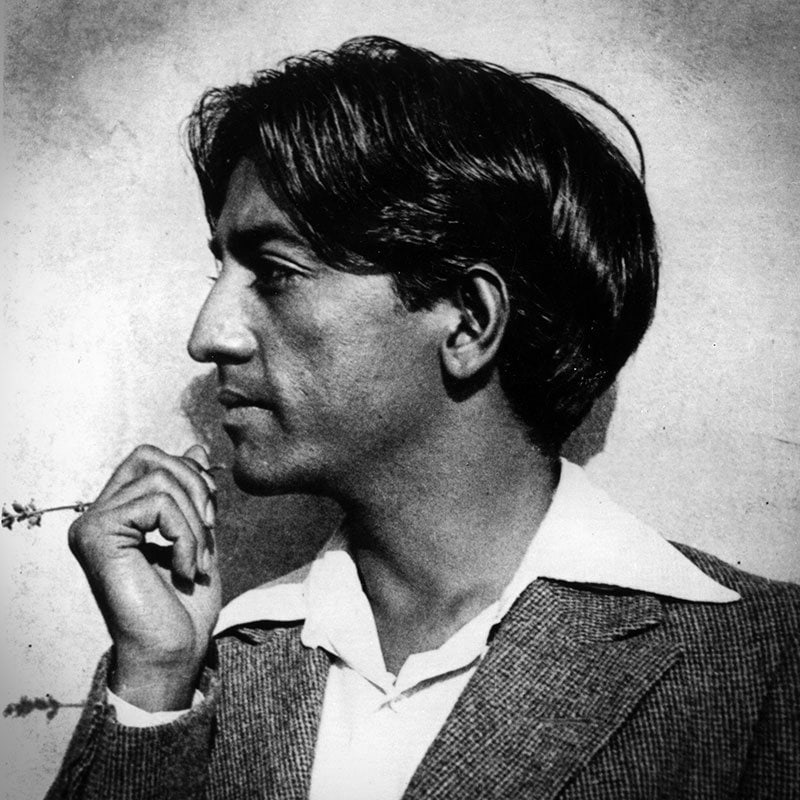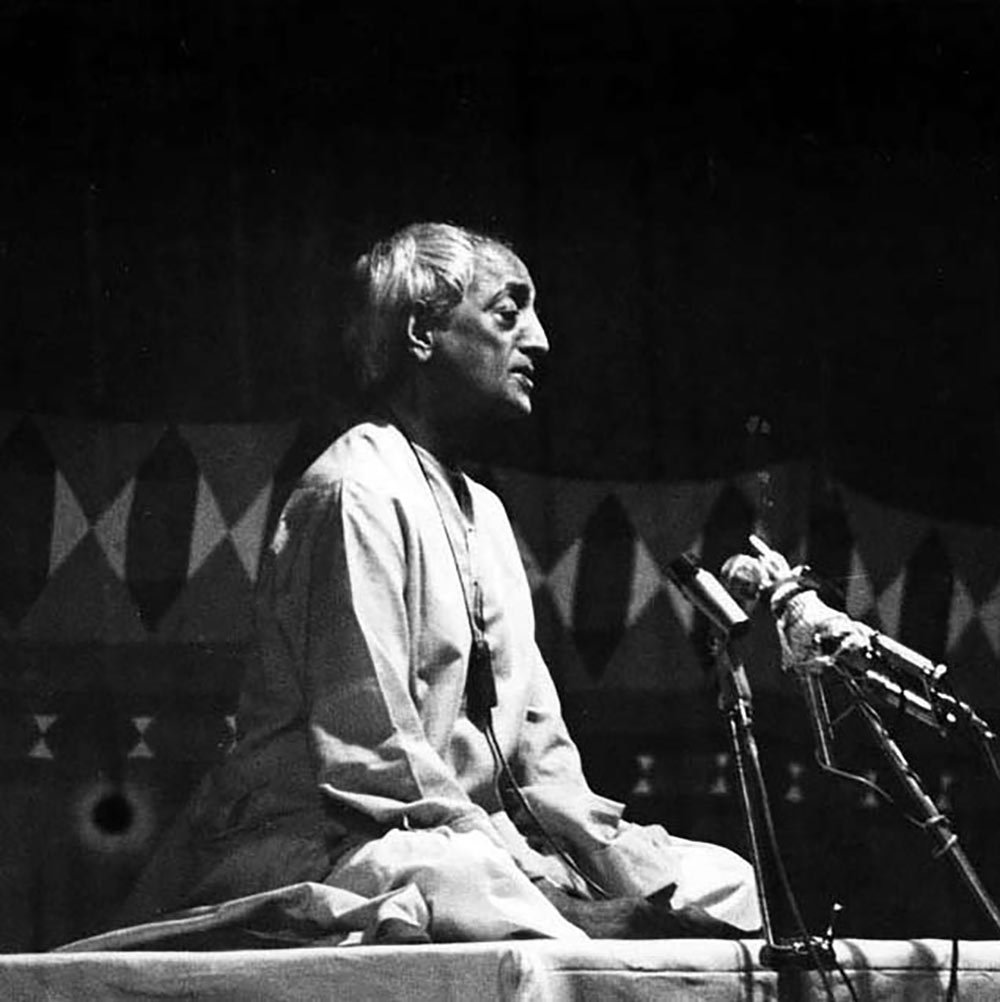Jiddu Krishnamurti (1895-1986) was an Indian philosopher and spiritual teacher whose teachings were very different from traditional religious or esoteric approaches. Throughout his life, he urged people to pursue the search for truth independently of institutions, gurus or dogmas. He believed that true change could not be achieved through external influences, but through inner understanding and radical introspection.

Krishnamurti’s central teachings
Krishnamurtis philosophy was based on the idea that the key to personal and social transformation lies in understanding one’s own mind. Some of his most important teachings include:
- Freedom from conditioning: Krishnamurti argued that the human mind is conditioned by social, cultural, religious and political influences, which prevents us from seeing the world objectively. This conditioning leads to prejudice, conflict and separation. The only way to true freedom is to recognise and let go of this conditioning.
- Observation without judgement: Krishnamurti emphasised the importance of observing ourselves and the world around us without judgement. Through this kind of pure perception, free from interpretation or judgement, one can see reality more clearly and understand it better.
- No authority, no gurus: In contrast to many spiritual teachers, Krishnamurti emphasised that there are no external authorities or gurus who can show you the way to the truth. Each person must take responsibility for their own understanding and their own spiritual transformation.
- Understanding fear and suffering: Krishnamurti recognised the central role of fear and suffering in human existence. He taught that the key to understanding and overcoming these emotions lies in directly exploring their causes without fleeing or suppressing them.
Krishnamurti’s teachings in the current context
In today’s world, characterised by uncertainty, social change and digital distraction, Krishnamurti’s teachings seem more relevant than ever. The constant overstimulation from social media and news, as well as the pressure to conform to social norms, leads to a sense of alienation and inner turmoil. Krishnamurti’s concept of freedom from conditioning addresses precisely these challenges: He called for people not to simply accept outside influences, but to question their own reality.
Especially in times of global crises, such as the climate crisis or political unrest, Krishnamurti’s approach calls for people to go beyond simple solutions or ideological answers. Instead of hoping for simple answers from the outside, his philosophy calls for a deep, personal understanding of the world and our own role in it.
Krishnamurtis emphasis on observation without judgement is particularly relevant in a time of ‘fake news’ and polarised discussions. The ability to look at the world around us and the information we receive without biased opinions could help improve dialogue and lead to deeper understanding.

Individual change as the key to change
A central theme in Krishnamurti’s teachings was the idea that true change cannot be achieved through political systems, revolutions or religious movements. Instead, change begins at the individual level – by understanding one’s own thoughts, fears and desires. In a world that often looks for quick fixes, Krishnamurti’s philosophy reminds us that true transformation requires time, awareness and self-reflection.
Krishnamurti remains a voice calling us to go beyond the superficial answers and seek a deeper insight into human nature. His teachings offer a valuable perspective for people seeking guidance in a complex and fast-paced world.

Fotos and Video from the official Krishnmurti Foundation Website








